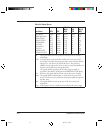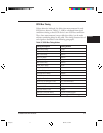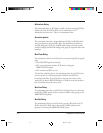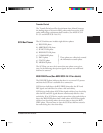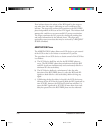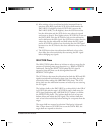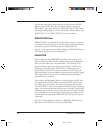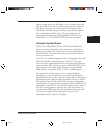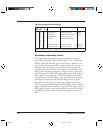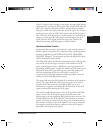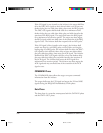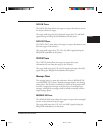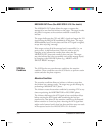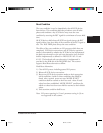
3-18 M3099GX/GH OEM Manual
No less than two deskew delays after the initiator detects the BSY
signal is true, it shall release the SEL signal and may change the
DATA BUS. The target shall wait unitl the SEL signal is false before
asserting the REQ signal to enter an information transfer phase. (See
ANSI SCSI-2 6.1.3.1 SELECTION Time-out Procedure)
RESELECTION Phase
RESELCTION is an optional phase that allows a target to reconnect
to an initiator for the purpose of continuing some operation that was
previously started by the initiator but was suspended by the
target(i.e., the target disconnected by allowing a BUS FREE phase to
occur before the operation was completed).
RESELECTION
Upon completing the ARBITRATION phase, the winning SCSI
device has both the BSY and SEL signals asserted and has delayed at
least a bus clear delay plus a bus settle delay. The winning SCSI
device becomes a target by asserting the I/O signal. The winning
SCSI device shall also set the DATA BUS to a value that is the
logical OR of its SCSI ID bit and the initiator’s SCSI ID bit. The
target shall wait at least two deskew delays and release the BSY signal.
The target shall wait at least a bus settledelay before looking for a
response from the initiator.
The initiator shall determine that it is reselected when the SEL and
I/O signals and its SCSI ID bit are true and the BSY signal is false
for at least a bus settle delay. The reselected initiator may examine
the DATA BUS in order to determine the SCSI ID of the reselecting
target. The reselected initiator shall then assert the BSY signal within
a selection abort time of its most recent detection of being reselected;
this is required for correct operation of the time-out procedure. The
initiator shall not respond to a RESELECTION phase if bad parity
is detected.
Also, the initiator shall not respond to a RESELECTION phase if
other than two SCSI ID bits are on the DATA BUS.
#03.pm5 98.2.22, 1:31 PM18



